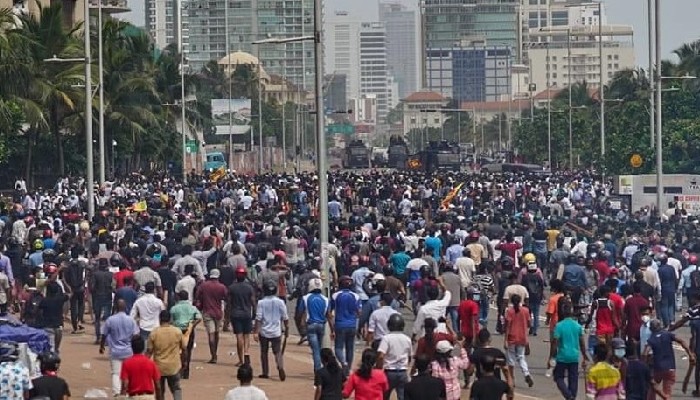The Visa wing staff, most of whom are Sri Lankan nationals, were unable to attend the office hence this difficulty was raised, the Colombo-based Indian High Commission said
The Indian High Commission in Sri Lanka on Friday vehemently denied reports of India stopping the issuing of visas in the country and called the disruption was primarily due to the inability of visa wing staff to conduct the operations.
While taking to twitter, The High Commission tweeted, "High Commission categorically denies that it or the Indian Consulates-General or the Assistant High Commission of #India in #SriLanka have stopped issuing visas. In the past few days, there were operational difficulties due to the inability of our Visa Wing staff, most of whom are #SriLankan nationals, to attend office."
It further said, "We are striving to return our functioning to the normal levels soon. We remain committed to facilitating ease of travel for #SriLankans to #India. #SriLankans are welcome in #India just as #Indians are in #SriLanka."
Since its independence, Sri Lanka is facing its worst economic crisis leading to acute shortage of food, fuel and other essential commodities.
It's just on the brink of bankruptcy and resentment among the people is coming out in the form of violence.
From March end onwards, Sri Lanka has been swamped by protests, taking place in the country between the government supporters and those calling for the resignation of Prime Minister Rajapaksa.
On March31, hundreds of protestors tried to storm the home of President Gotabaya Rajapaksa, demanding his resignation, the reports said.
The capital city was placed under curfew and a state of emergency was declared the following day.
On April 2, troops were deployed, and a 36-hour nationwide curfew was imposed. The following day, almost all of Sri Lanka's cabinet resigned. On April 5, President Rajapaksa lost his parliamentary majority after his finance minister resigned, and he lifted the state of emergency.
Protests soon broke out across the country, fuelled by a further shortage of life-saving medicines. Protesters called for President Gotabaya's resignation. They blamed him for not managing the crisis; he was accused of borrowing too much money to finance projects which had not returned enough profit for Sri Lanka, a local newspaper reported.
On May 6, President Rajapaksa imposed a second state of emergency and power was given to security forces to keep the situation under control.
Later, the government supporters, armed with iron bars, attacked anti-government demonstrators in their tent village leading to bloodshed and resignation of Prime Minister Mahinda Rajapaksa.
After a week of violent clashes that resulted in death of nine and injuries to over 300 people, president Gotabaya Rajapaksa appointed veteran opposition politician Ranil Wickremesinghe as nation's prime minister late on Thursday
Even though Sri Lanka's new prime minister will begin forming a unity government, it has failed to win the trust of anti-government protesters demanding the resignation of the president. Protestors say they will stop their agitation only when justice is served.











 Contact Us
Contact Us
 Subscribe
Subscribe
 News Letter
News Letter
 Instagram
Instagram Youtube
Youtube